Chickens are like eating machines, as they can eat almost anything. But can chickens also eat peanuts?
These fowls peck and eat any treats they see on the ground and even in the air as omnivores. And on this post, we’ll cover the topic of chickens can eat peanuts.
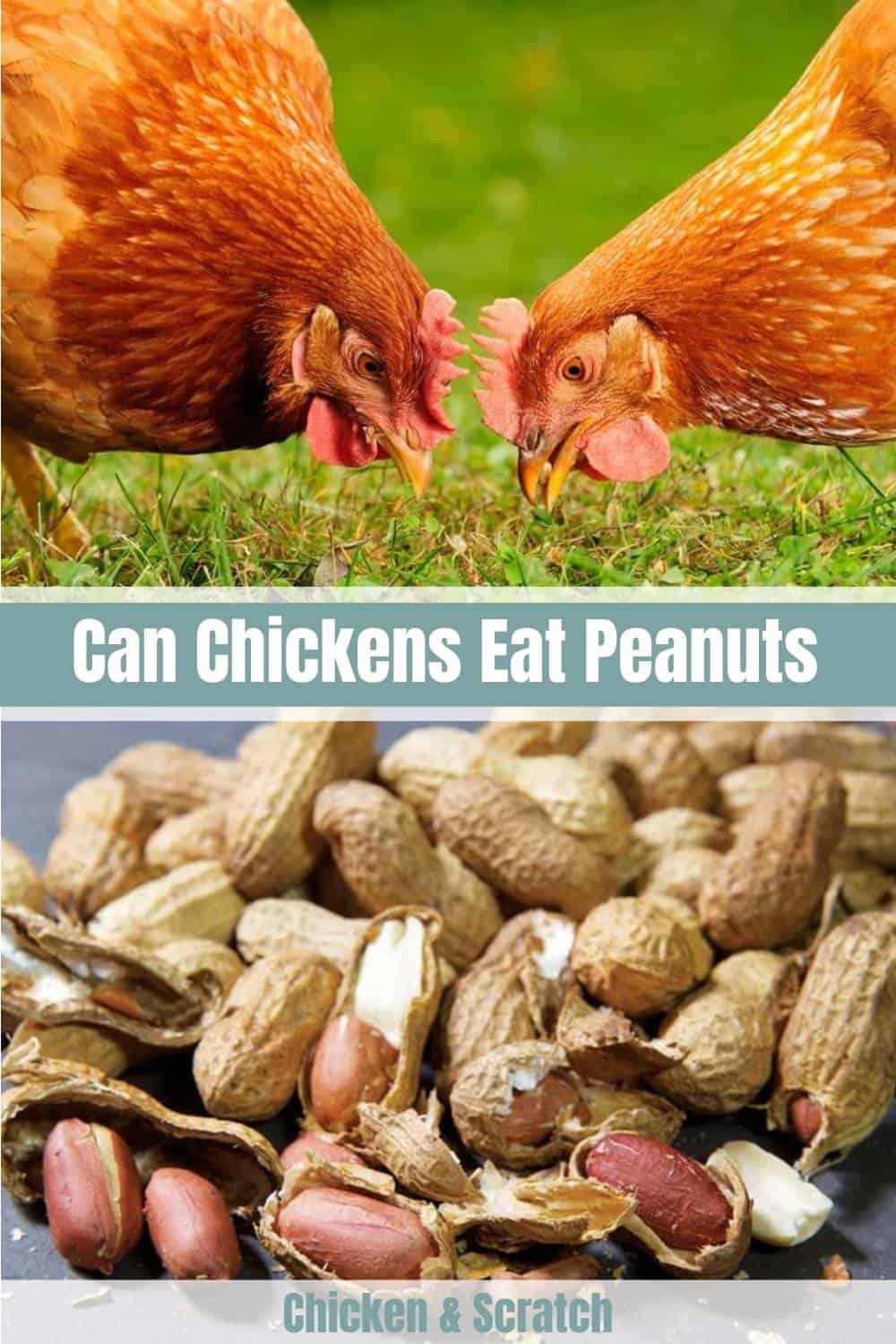
Do Chickens Eat Peanuts?
| Peanut Part or Cooking Method | Can Chickens Eat It? (Yes or No) |
| Peanut Shells or Hulls | Yes |
| Peanuts Seeds or Pods | Yes |
| Raw Peanuts | No |
| Roasted Peanuts | Yes |
| Boiled Peanuts | Yes |
| Oily Peanuts | No |
| Peanut Butter | Yes |
| Salted Peanuts | No |
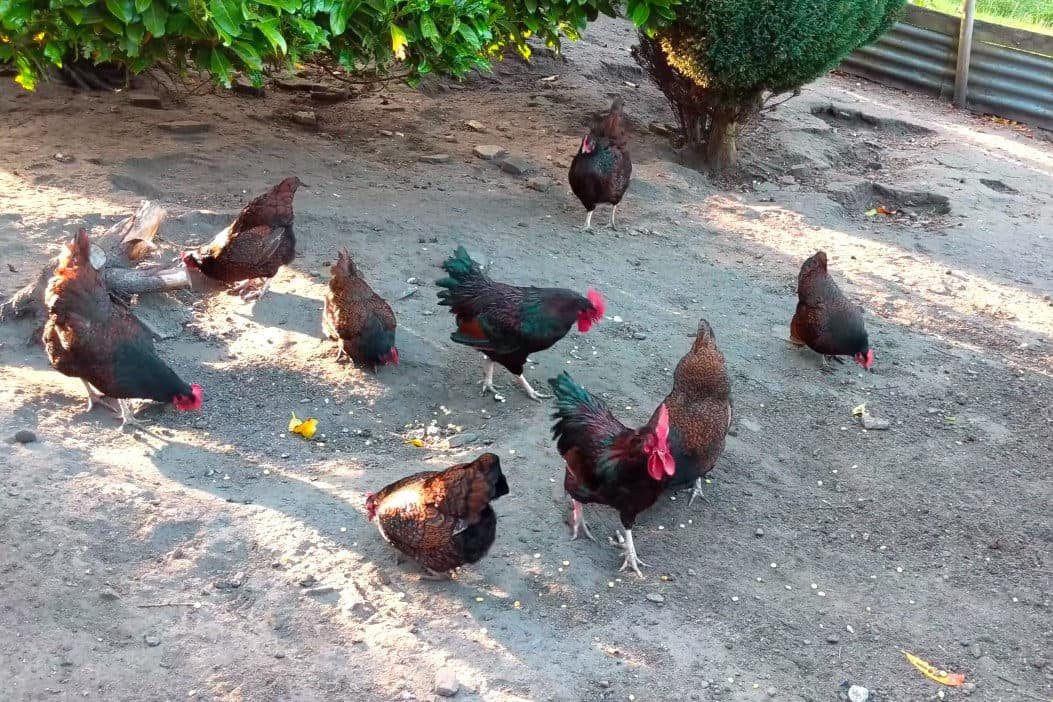
These nuts are overall a healthy feed for chickens in a lot of ways. Also, peanuts do not rot quickly, so having a few left in the coop for days is okay. And these peanuts do not attract pests when you have a couple of them in the coop.
But if your chickens leave some peanuts more often after more than a few hours, you may offer them a lot. That would mean you probably need to provide fewer peanuts the next time you give them these treats.
Peanuts are full of essential amino acids and a lot of protein your poultry needs to sustain their energy and strength. Like other chicken treats, you should feed your fowls peanuts in moderation.
And if you’re wondering if your chickens may not like peanuts, you may be wrong. Most backyard homestead owners claim that their chickens are crazy about all nuts! Indeed, your fowls will love eating peanuts.
Do chickens love peanuts? They surely do. Your birds would appreciate it much if you fed them these nuts occasionally.
Can Baby Chicks Eat Peanuts?
Baby chicks, in general, are delicate. As chicken raisers, you have to be extra cautious when serving them food. You have to make sure you only give them food that their system can easily digest.
You can give your baby chicks cooked and unsalted peanuts but only in smaller amounts. More so, also make sure that the baby chicks can eat these peanuts with no difficulty.
But consult your vet first before you start feeding baby chicks with peanuts. Some researchers recommend avoiding feeding baby chicks with peanuts. Further reading: What Do Baby Chicks Eat? (Beginning with Starter Feed)
Can You Feed Peanut Shells Or Hulls To Your Chickens?
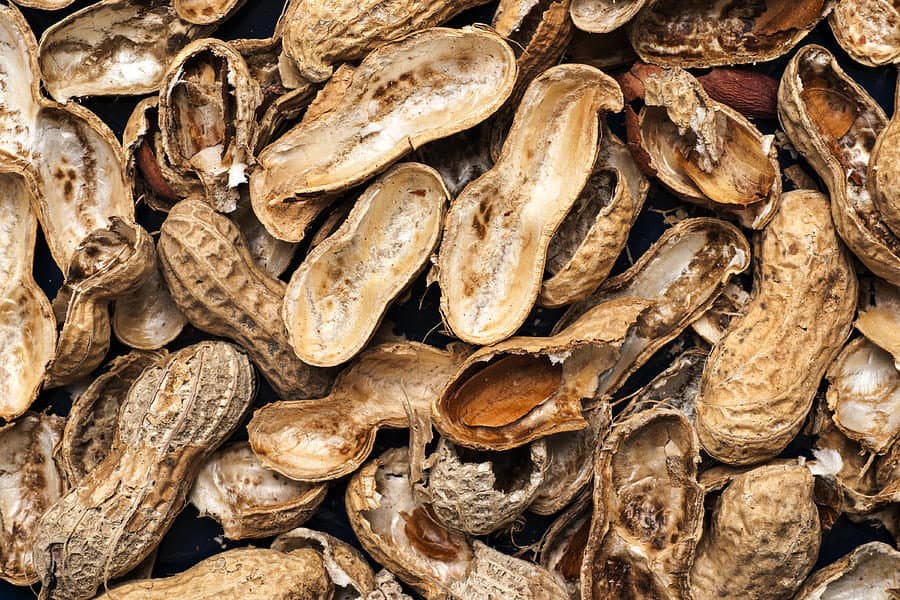
The simple answer is yes. You can feed peanut shells or hulls to your chickens. Humans may remove and throw the peanut shells, but they are downright nontoxic for your chickens to eat.
While others believe that chickens may not benefit from the peanut shells, these parts of the nut can also be pretty nourishing for your poultry. Peanut shells are rich in protein, fibers, and cellulose, benefiting your birds.
A study on the effect of peanut shells on chickens revealed that there were no negative outcomes. The peanut shells did not affect the chickens’ food consumption, nor were there no deaths linked to it.
Some farmers also claim that they tried to feed their chickens peanut hulls or shells, but they won’t eat them. That’s why other farmers make some peanut shell concentrations or recipes.
This peanut shell chicken feed has one goal; to turn waste into wealth. It utilizes peanut shells and turns them into helpful meals for the chickens.
But for sure, peanut hulls or shells are great as chicken beddings in nests or coops. Some chicken keepers compost peanut shells and grind them for poultry beddings. But this procedure takes time as well.
You can serve peanut shells in two ways to your chickens. You can dish peanut shells raw or roasted to the chickens. Also, you can crush the shells and mix them in their feed.
Can You Feed Peanut Pods Or Seeds To Your Chickens?
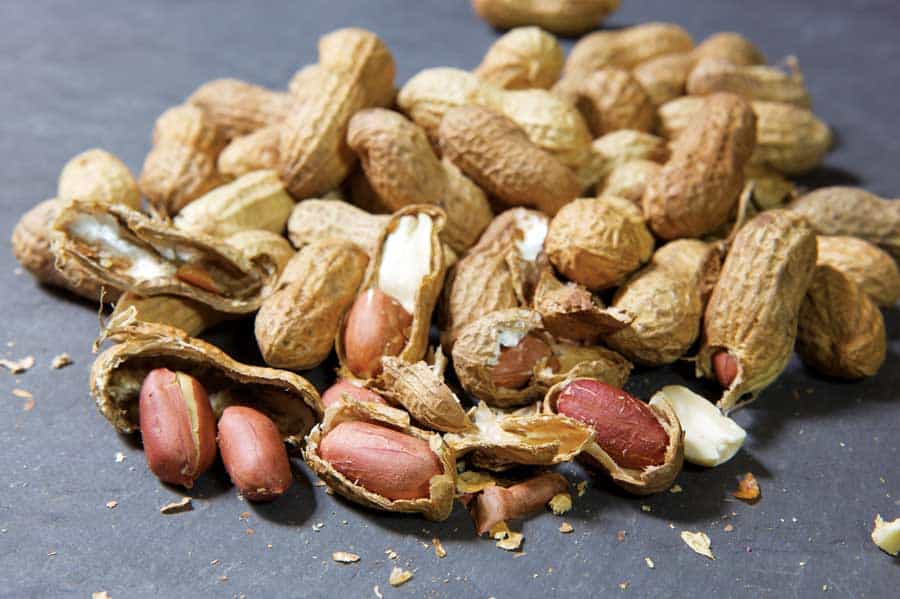
Yes, it is safe for you to feed your chickens peanut pods and seeds. It does not offer any adverse effects. That said, peanut pods can be too big for your chickens.
Are Raw Peanuts Safe For Chickens?
Make sure you avoid feeding your chickens raw peanuts. These raw nuts include an enzyme called peanut lectin that can harm your poultry’s health. Raw peanuts also contain an enzyme called trypsin which is deadly for smaller animals and fowls.
There is not much research to support the claim that the green skin of peanuts contains a toxic glycoalkaloid called solanine. This toxicity is also fatal to the birds’ health. So, being safe for your chickens’ well-being is better than being sorry later.
Are Roasted Peanuts Safe For Your Chickens?
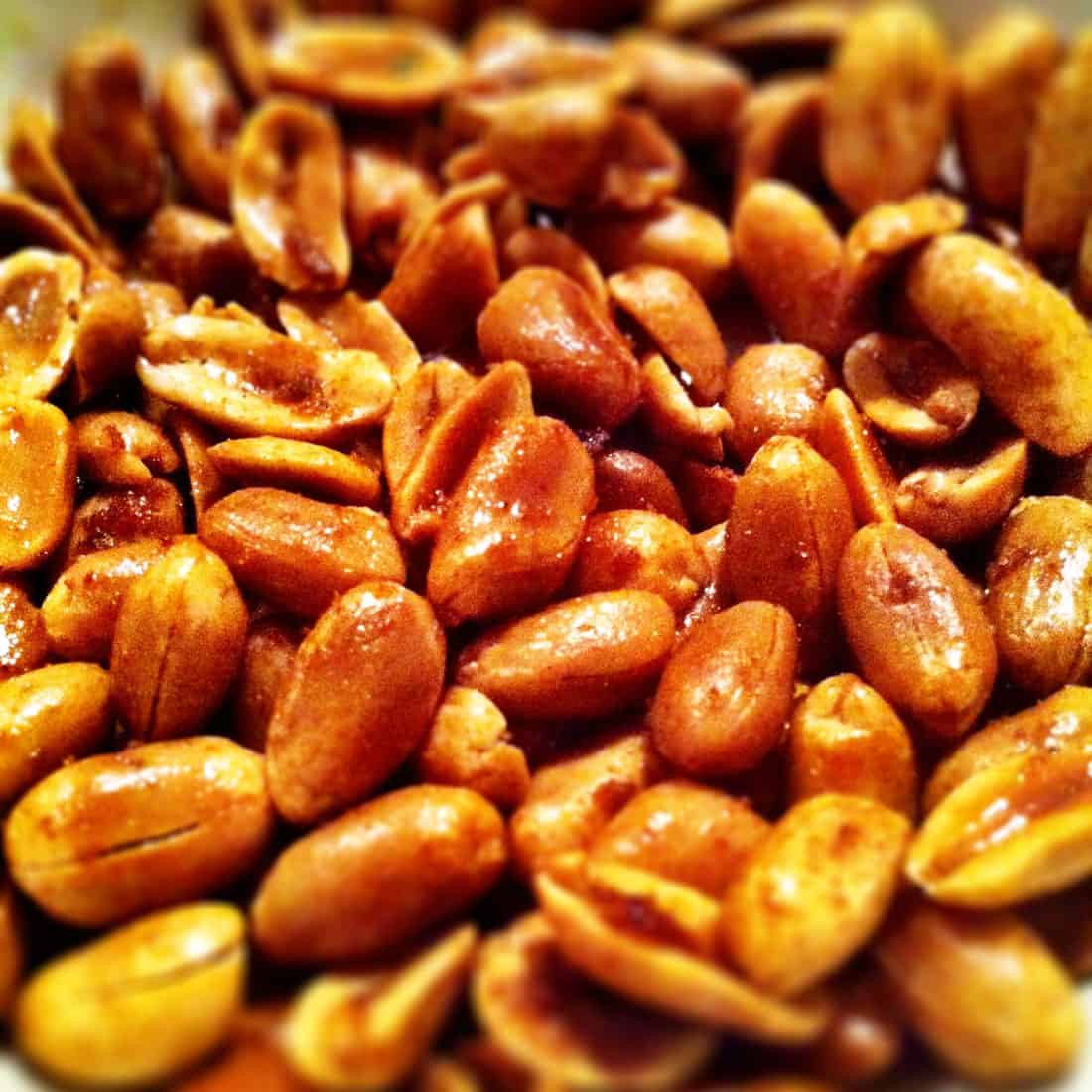
Roasted peanuts are safe for your cluckers. But it would be best if you still were cautious when roasting peanuts for your chickens.
Be mindful to roast peanuts for your chickens without any oil or butter. Also, avoid burning your fowls’ mouths by serving the peanuts hot. Let the peanuts cool down well first before serving them to the chickens.
More so, serve the peanuts unsalted because salt can be damaging to the chickens’ well-being. However you cook your roasted or boiled peanuts, you can feed them to your chickens as long as you avoid salt and oil or butter with it.
Are Boiled Peanuts Safe For Your Chickens?
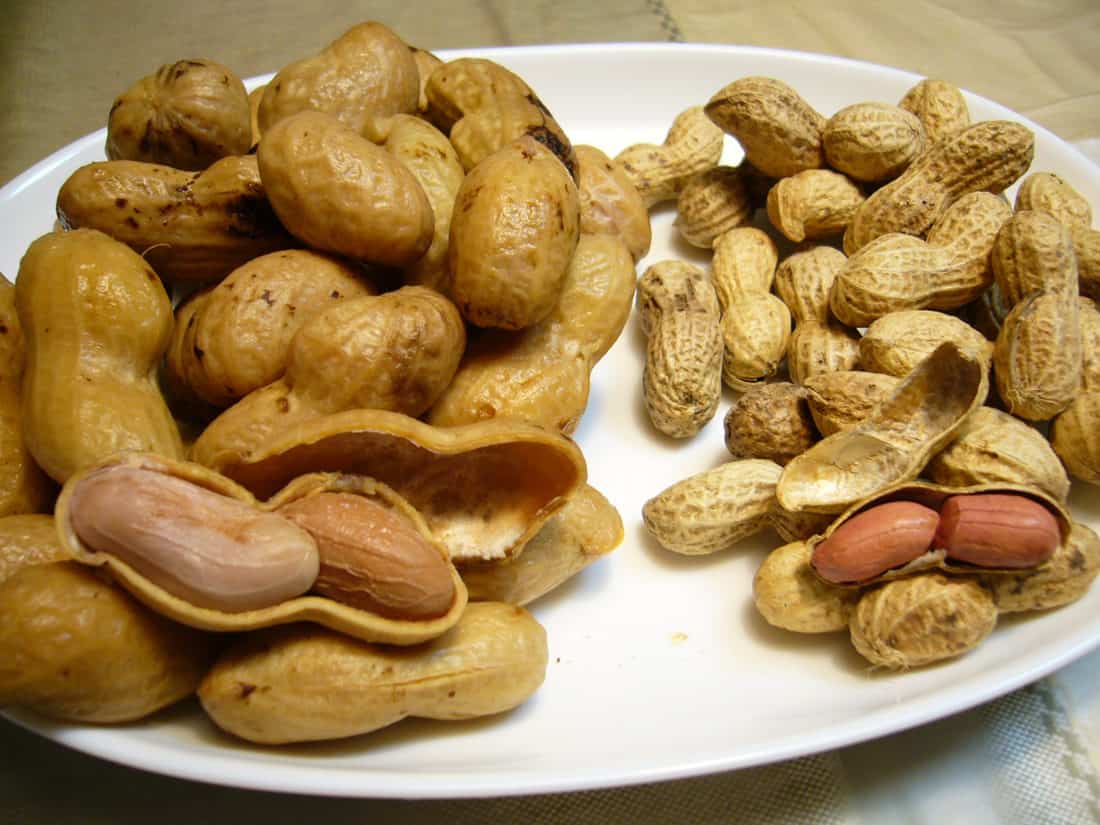
As long as you didn’t add salt or any oil and butter to your peanuts, it’s safe to feed them to your chickens boiled. Boiled peanuts contain four times more antioxidants.
There are research and studies that claim boiled peanuts can support chickens gaining weight. Since it’s also harmful to chickens to be obese, feed boiled peanuts to chickens in moderation only.
Are Oily Peanuts Safe For Your Chickens?
Some people love to eat peanuts cooked in oil. But this way of cooking can be harmful to your cluckers. Always remember that greasy and oily food is difficult for chickens to digest.
The best recommendation when feeding chickens peanuts is unsalted roasted peanuts.
Can You Feed Your Chicken Peanut Butter?
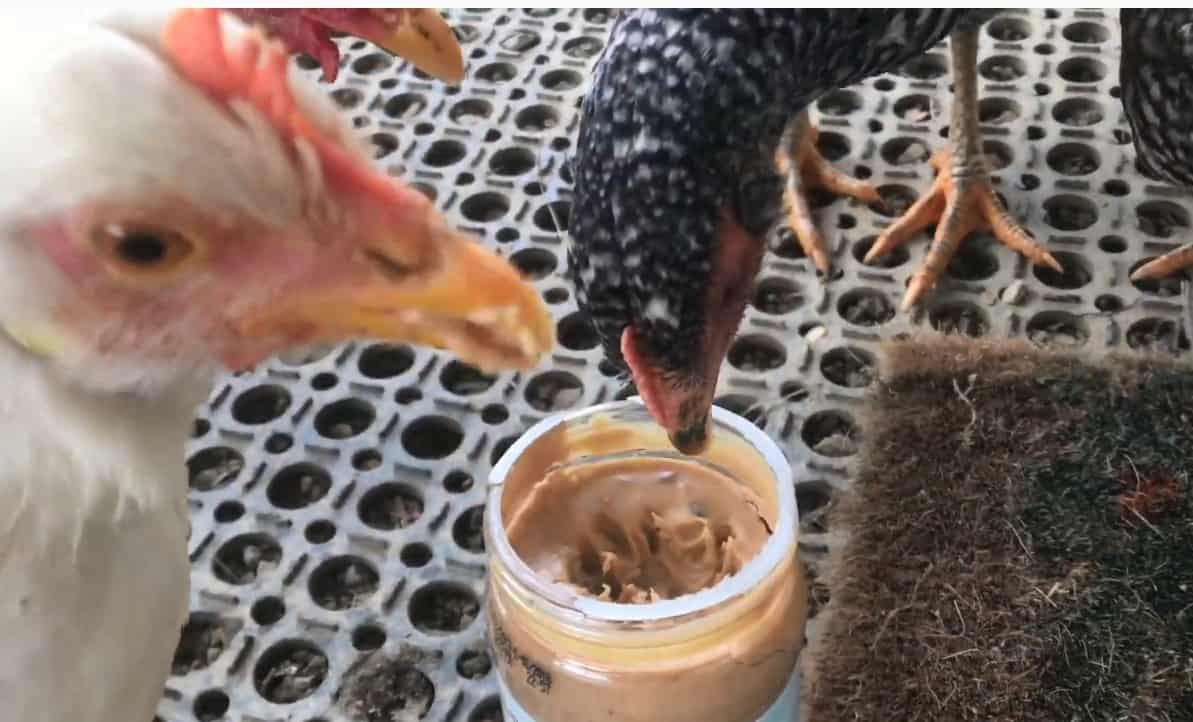
Peanut butter is not the worst treat you can give out to your chickens. In some other peanut butter brands, this treat contains 25 percent of protein. And laying hens need at least 16 percent of protein.
Also, as its main ingredient is peanuts, it contains many nutrients beneficial for poultry. But peanut butter is also high in fat.
So, as for rare treats, peanut butter is acceptable for chickens. The only main issue is that it’s sticky, but other than that, when you feed it in small amounts, there’s no specific harm to your chickens.
There are several ways of serving peanut butter to your chickens, such as mixing it with their grains and seeds. Also, you can give peanut butter to chickens by spreading it on a slice of bread or any safe vegetable and fruit the chickens can eat.
Can You Feed Salted Peanuts To Your Chickens?
The answer is no. It’s one of the precautions you need to know as a chicken breeder. Make sure you don’t offer salted peanuts or any other flavorings added to it before you feed them to your cluckers.
We all know flavorings will be bad for your poultry’s health. More so with the amount of salt and other seasonings used with peanuts. No honey roasted, spicy, salted, or any flavorings. Provide peanuts to your chickens as they come out of the hulls.
How Often Should You Feed Your Chickens Peanuts?
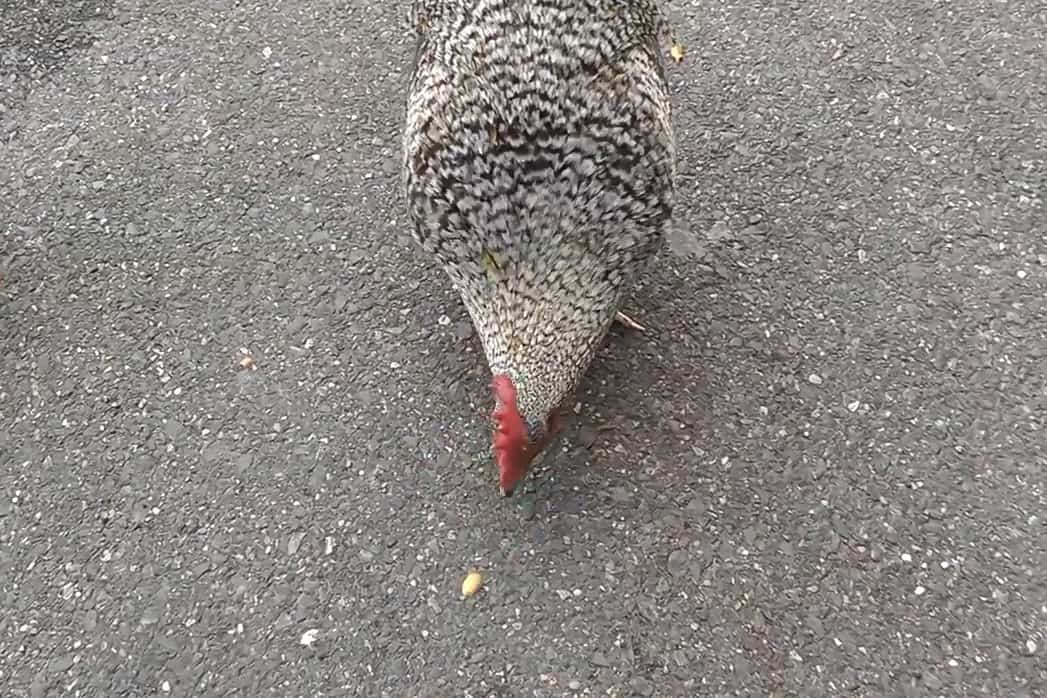
Like most treats beyond the standard chicken feed, you shouldn’t feed your chickens peanuts too often. Peanuts are healthy, no question about that, but these nuts are still high in calories and fats.
The fats your chickens can consume from peanuts are beneficial for egg production. These fats help in producing richer-tasting eggs. Yet, be cautious, as there’s a thin line between providing your chickens with good fat and too much fat.
Most experienced chicken farmers recommend feeding your chickens peanuts not more than once or twice weekly. You can mix and match peanuts to other chicken treats as well.
Overall, ensure that what you feed to your chickens is safe for them. Furthermore, a quarter cup of peanuts weekly is best recommended.
Peanuts Nutritional Value For Your Chickens
100g Peanuts Nutrition
| Nutrient | Value |
| energy | 567 kcal |
| water | 6.5 g |
| protein | 25.8 g |
| fat | 49.2 g |
| carbohydrate | 16.1 g |
| fiber | 8.5 g |
| sugars | 4.72 g |
| Vitamin C | 0 mg |
| Vitamin K | 0 ug |
| Manganese | 1.93 mg |
| iron | 4.58 mg |
| potassium | 705 mg |
| magnesium | 168 mg |
| phosphorus | 376 mg |
| sodium | 18 mg |
| zinc | 3.27 mg |
| folate | 240 ug |
Chickens are trusting and eat whatever you feed them. More often than not, these birds don’t know if the treats are nutritious or damaging to them.
As their parents, it’s your responsibility to pay particular attention and be more cautious about your chickens’ nutritional requirements. Thus, only feed them treats and food that can cause development to their growth and health.
But, before you include peanuts in the list of healthy treats for your chickens, you must first determine the nutritional substances of these nuts. Peanuts don’t have Vitamins A, C, or E. These nuts may not have these vitamins, but they have enough minerals to balance their lack.
B-complex
These healthy nuts have B-complex series that are beneficial for your chickens. You can find thiamin in peanuts that are in control of the chickens’ appetite. Thiamin deficiency can make your fowls malnourished, which can sometimes lead to death.
Shortage of riboflavin, which peanut contains, can also lead to Curly-toe Paralysis. More so, this mineral from peanuts is vital for healthy egg production.
Niacin and Pantothenic acid
Other minerals found in peanuts are niacin and pantothenic acid. Niacin protects the chickens from all inflammatory diseases like Mouth Cavity Inflammation because of its anti-inflammatory substances. Pantothenic acid is in charge of the chickens’ skin health, which prevents Lesions or Dermatitis.
Calcium, Phosphorus, and Zinc
Peanuts are also a good source of calcium and phosphorus that fortify the birds’ bones and enhance eggshell excellence and hatchability. Peanuts also protect your chickens from Perosis because of their zinc content. Zinc also is in control of sustaining feather health and bone development of the chickens.
What’s more is that peanuts provide strength in the overall digestive, immune, and respiratory systems of your fowls. These health benefits are most beneficial during wintertime when chickens molt.
Antioxidants
Furthermore, peanuts contain magnesium and are rich in antioxidants such as P Coumaric acid, Phytic acid, Phytosterols, and Resveratrol. These antioxidants boost their reproductive proficiencies and in sustaining the overall health of your poultry.
Risk Involved In Peanut Consumption In Chickens
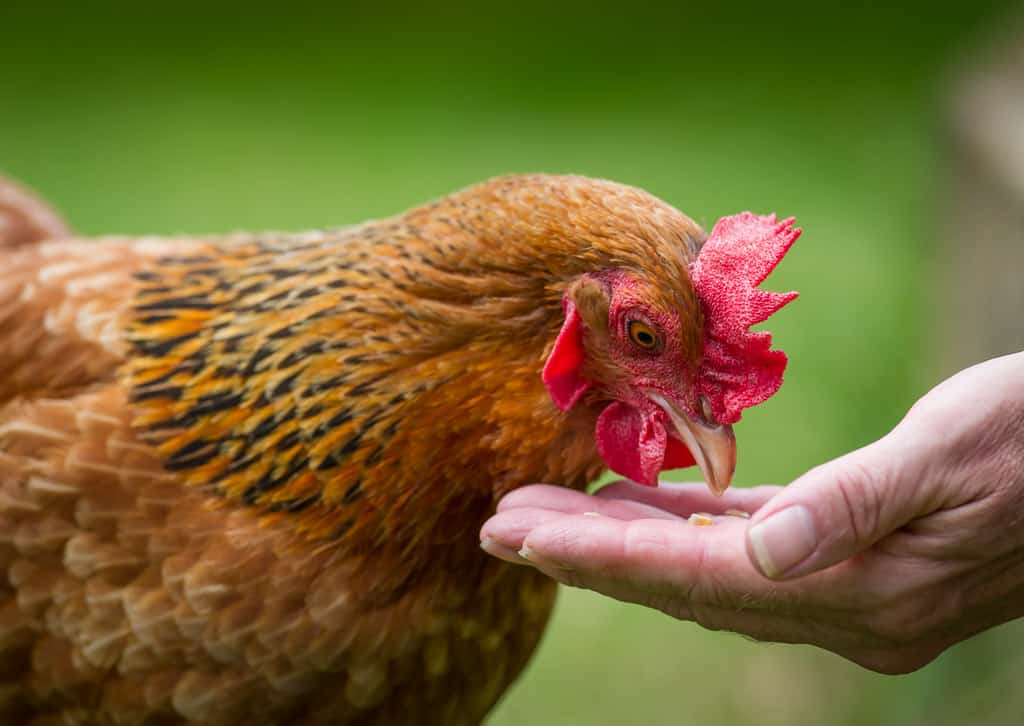
Most people assume that if it’s healthy for humans, why can it be harmful to animals? Peanuts are safe for these cluckers only when ingested in moderation. So, problems occur when these birds overindulge in their snacks.
High-Fat Content
As mentioned in the article above, peanuts contain many nutrients but are also abundant in fat. It would be best if you were cautious in feeding your chickens with peanuts.
As your poultry may require fat in their diet, consuming a lot of it can be a tragedy. Too much fat in the chickens’ diet can cause obesity. Obese chickens are prone to a lot of health problems.
More so, obesity in chickens can lead to Fatty Liver Hemorrhagic Syndrome. The fat accumulates around the liver, that makes it susceptible to bleeding in this syndrome. Often the vulnerable liver leads to death for many chickens.
That’s why, like other chicken treats, feed them peanuts in moderation as well. Peanuts can be healthy for your chickens and lead a long, healthy life when provided with balance.
Choking Hazard
Whole nuts could easily pose choking hazards leading birds to struggle with blockages in their digestive tract due to inability to swallow large chunks. It’s wise for chicken owners to crush the nuts into smaller pieces before offering them; it reduces choking risks considerably!
Aflatoxin Contamination
Feeding your feathered friends with peanuts may seem harmless, but did you know that serving them improperly stored can put the health of your chickens at risk? It’s because they might get exposed to a harmful toxin called aflatoxin, a naturally occurring compound produced by fungi.
These toxins have been known to pose potential risks for human and animal consumption. Chickens consuming contaminated nuts are susceptible to developing liver damage among other debilitating symptoms which could impact their overall wellbeing.
Be vigilant when sourcing peanuts and read about storing guidelines to properly prevent any chances of mold growth in storage areas as it’s one major way through which contamination occurs.
Allergies and Sensitivities
Like humans, your flock is not immune to allergies or sensitivities. Introducing new foods such as peanuts into their diet without caution could lead to digestive issues and allergic reactions, amongst other signs of discomfort.
Final Thoughts
Can chickens eat peanuts? The answer is definitely yes, but only in moderation. More so, it would be best if you considered a little precaution. Little peanuts now and then are going to make your feathered pets happy like a dream.

Joseph Hudson has been raising chickens for over 15 years. In 2018, he completed the Agriculture & Natural Resources program at Mt. San Antonio College. He currently raises over 1400 chickens on his 7.5-hectare farm. He keeps sharing his experience on raising healthy and happy chickens on Chicken Scratch The Foundry.






